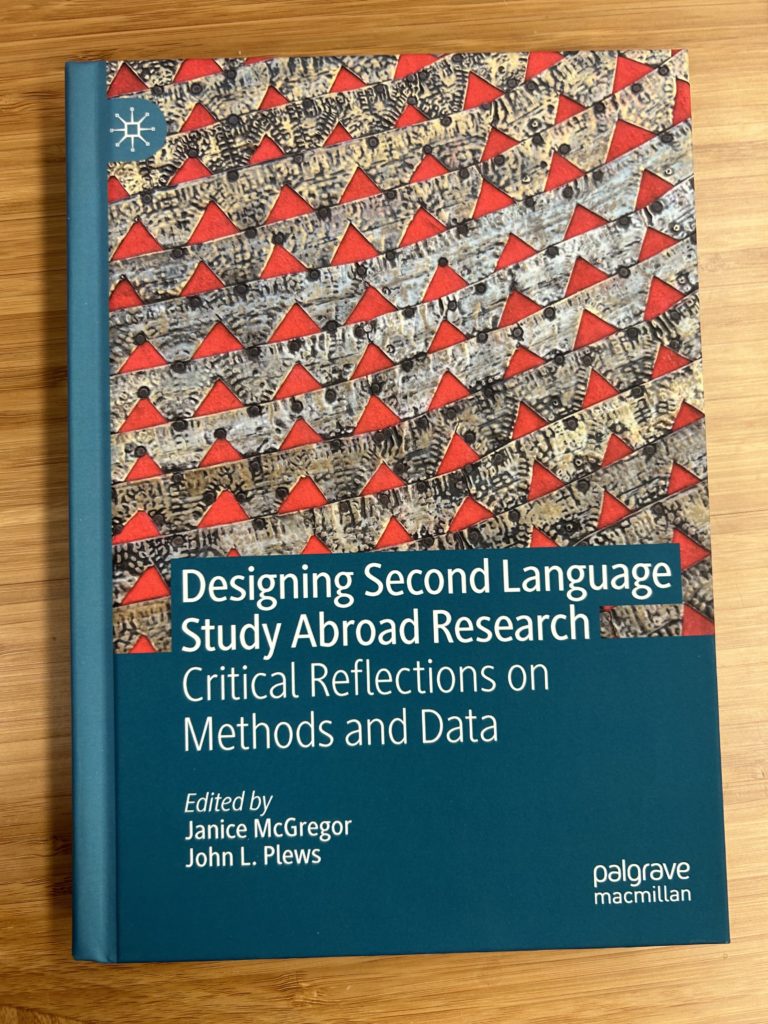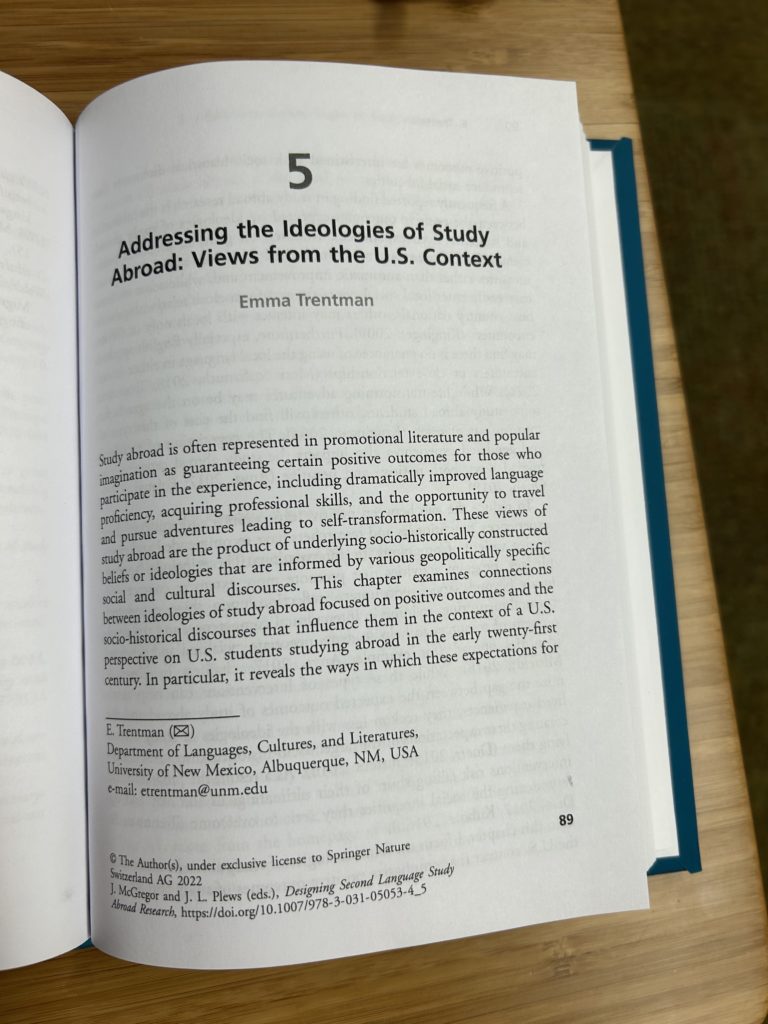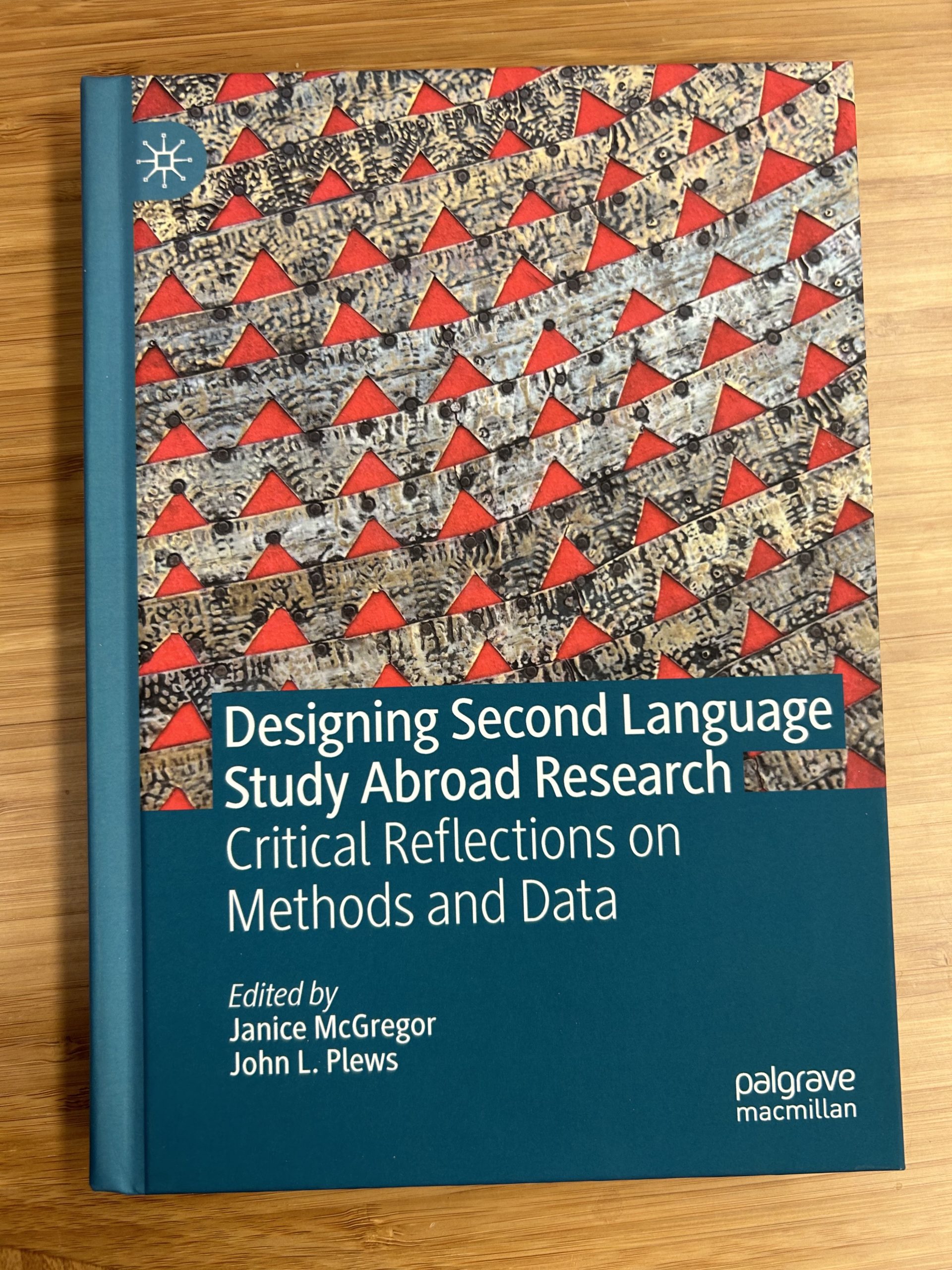I’m excited to announce that I received a hard copy of Designing Study Abroad Research: Critical Reflections on Methods and Data, edited by Janice McGregor and John L. Plews. This book takes a critical approach to research and inquiry into study abroad, bringing together chapters by many of my favorite study abroad researchers! Research on study abroad increased along with the numbers of students studying abroad in the 21st century, and this book provides the opportunity for a critical assessment of how we research and evaluate study abroad. There are four broad subsections: research paradigms and approaches, data and instruments, participants and contexts, and analysis of data. I’m looking forward to reading all of them!


My own chapter in the book, “Addressing the Ideologies of Study Abroad: Views from the U.S. Context” focuses on my recent interest in ideologies of study abroad and the tensions they create with students’ actual experiences abroad. We know from existing study abroad research that there are consistent mismatches between expectations of positive outcomes (e.g. improved language proficiency) and the actual experiences of study abroad, in addition to extensive individual variation. A common recommendation in the study abroad literature is to focus on programmatic interventions. In this chapter, I argue that without reckoning with ideologies of study abroad, these programmatic interventions will continue to fall short of their goals, and potentially reinforce the inequitable social structures they are seeking to overcome.
The specific ideologies I examine are study abroad as educational tourism, study abroad as personal transformation, study abroad as the ideal setting for language learning, and study abroad as professional preparation. For each ideology, I provide examples from marketing materials upholding these ideologies. I then take a more critical perspective to show relationships between these ideologies and existing inequitable socio-political structures. For example, study abroad as educational tourism is rooted in the Grand Tour of Europe, a cultural experience that was largely concerned with reproducing and maintaining existing class structures. Without attention to these types of connections, and seeking to actively resist them, we can inadvertently reproduce them.
My chapter concludes with a call to recognize the relationships between ideologies of study abroad and inequitable socio-political structures. Once we do this, we can reimagine these ideologies in ways that contest, rather than recreate inequities, and recreate our practices (in study abroad and beyond) accordingly. As study abroad continues to grow, and research in this context continues to develop, this will become increasingly important.
So, if you’re interested in critical approaches to study abroad, I’d encourage you to find a copy of this book!
